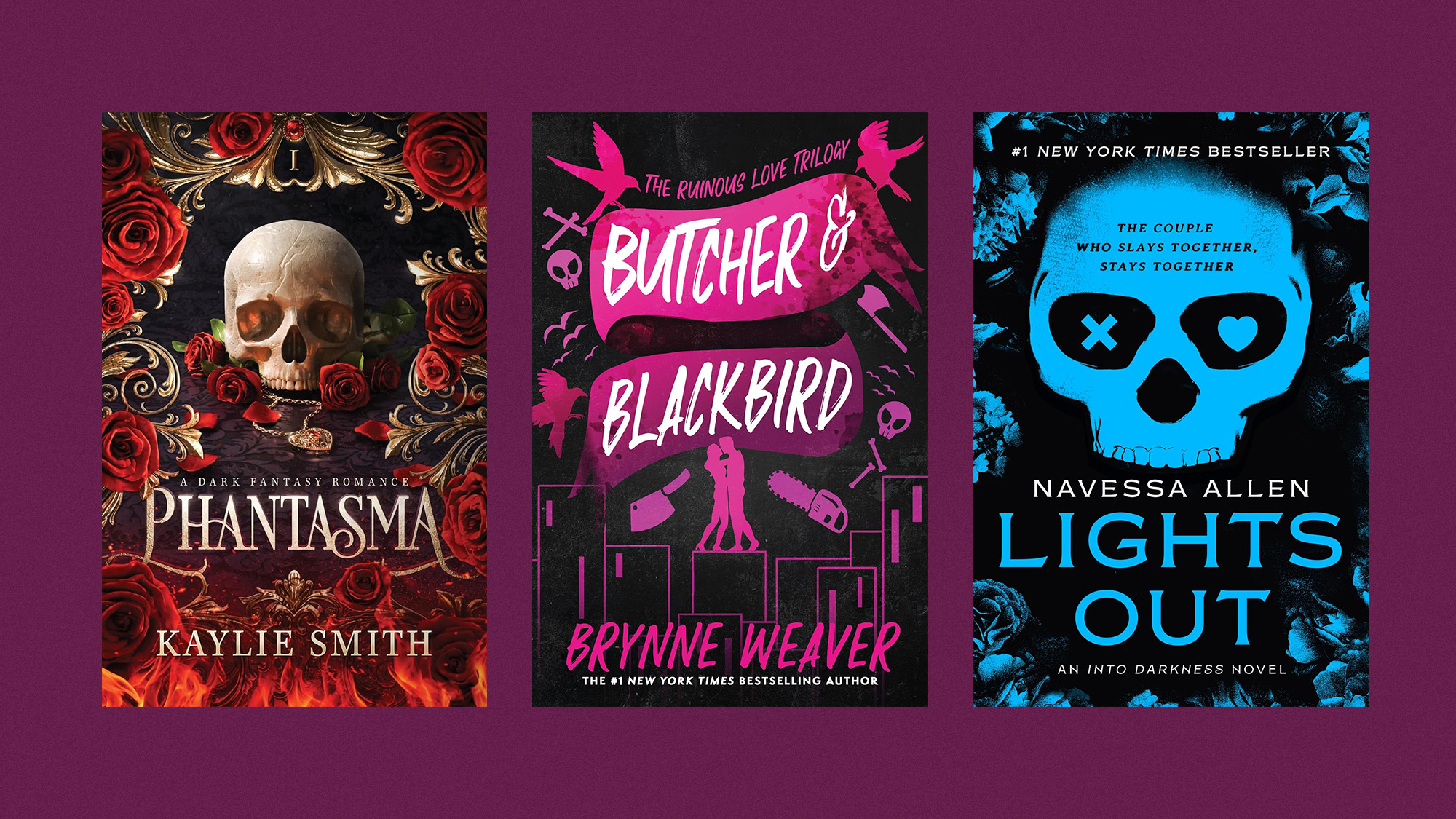The rise of performative reading
Why Gen Z may only be pretending to read those clever books

A free daily email with the biggest news stories of the day – and the best features from TheWeek.com
You are now subscribed
Your newsletter sign-up was successful
Next time you see someone poring over a highbrow novel on the train or posing with a philosophical tome on social media, you shouldn't automatically assume they are reading the book.
"Performative reading" is a trend that's trickled down from the celebrity world to everyday mortals, with some concluding there's more value in being seen to be reading an impressive title than in actually reading it.
'Trendy books'
It's known as "performative reading" as the 'reader' wants "everyone to know" they read, wrote Alaina Demopoulos in The Guardian. They're signalling they have the "taste and attention span" to "pick up a physical book" rather than "putting in AirPods".
The Week
Escape your echo chamber. Get the facts behind the news, plus analysis from multiple perspectives.

Sign up for The Week's Free Newsletters
From our morning news briefing to a weekly Good News Newsletter, get the best of The Week delivered directly to your inbox.
From our morning news briefing to a weekly Good News Newsletter, get the best of The Week delivered directly to your inbox.
The phenomenon has its roots in 2021, when a "boom" in book clubs led by celebrities along with "BookTok", the section of TikTok dedicated to promoting and discussing commercial fiction, turned favoured books into a "trend-driven accessory", said Sarah Manavis in The New Statesman.
BookTok is "inherently performative", with "trendy books" going viral, but not because of the "quality of the literature" but because it suggests an "increasingly fashionable, pseudo-intellectual aesthetic". And when reading becomes a competition, with "countless users bragging" about having read more than 35 books in a single month, supposedly, quality takes a backseat to "demonstrating yourself to be a voracious 'reader'".
For some members of Gen Z, books have become "a symbol not of intelligence" but of "hotness", said Allegra Handelsman in The Times last summer, an "accessory" to be worn with "a good outfit, wedged in the bottom of a designer bag" or "pretentious tote". Performative reading is everywhere, from "tattooed creatives, smoking cigarettes while staring at Marcus Aurelius's 'Meditations' on a beach in Ibiza", to the single man reading, or "at least appearing to read", feminist literature "in the hope of pretty girls sliding into his DMs".
Finger-wagging
The "commodification of intellect" with books isn't new, said Manavis, "nor is social posturing" through books. But what is new is the "uniquely unapologetic" way social media "rubber-stamps" the idea of books as "an accessory, rather than an art". And there's a danger it could lead to publishers focusing their efforts on books that are "feed-friendly".
A free daily email with the biggest news stories of the day – and the best features from TheWeek.com
But the inconvenient truth is that the virality of literature has led to an uptick in book sales, said Chloe Mac Donnell in The Guardian last year: in 2023, 669 million physical books were sold, the highest overall level ever recorded, with Gen Z a big driver of those sales, along with an increase of visits to UK libraries.
One of life's "simplest pleasures" remains "falling into a story" and "tuning the world out", without "worrying about what someone’s going to think of you", said Demopoulos. Enjoy the story. Many people are still doing exactly that, so rather than "finger-wagging" about performative reading, next time you see someone with a book at a bar, coffee shop or the park, maybe leave them alone because "this is not for you", they're just "enjoying the vibes".
Chas Newkey-Burden has been part of The Week Digital team for more than a decade and a journalist for 25 years, starting out on the irreverent football weekly 90 Minutes, before moving to lifestyle magazines Loaded and Attitude. He was a columnist for The Big Issue and landed a world exclusive with David Beckham that became the weekly magazine’s bestselling issue. He now writes regularly for The Guardian, The Telegraph, The Independent, Metro, FourFourTwo and the i new site. He is also the author of a number of non-fiction books.
-
 Bondi, Democrats clash over Epstein in hearing
Bondi, Democrats clash over Epstein in hearingSpeed Read Attorney General Pam Bondi ignored survivors of convicted sex offender Jeffrey Epstein and demanded that Democrats apologize to Trump
-
 Are Big Tech firms the new tobacco companies?
Are Big Tech firms the new tobacco companies?Today’s Big Question Trial will determine if Meta, YouTube designed addictive products
-
 El Paso airspace closure tied to FAA-Pentagon standoff
El Paso airspace closure tied to FAA-Pentagon standoffSpeed Read The closure in the Texas border city stemmed from disagreements between the Federal Aviation Administration and Pentagon officials over drone-related tests
-
 Book reviews: ‘Hated by All the Right People: Tucker Carlson and the Unraveling of the Conservative Mind’ and ‘Football’
Book reviews: ‘Hated by All the Right People: Tucker Carlson and the Unraveling of the Conservative Mind’ and ‘Football’Feature A right-wing pundit’s transformations and a closer look at one of America’s favorite sports
-
 Book reviews: ‘Vigil: A Novel’ and ‘Fear and Fury: The Reagan Eighties, the Bernie Goetz Shootings, and the Rebirth of White Rage’
Book reviews: ‘Vigil: A Novel’ and ‘Fear and Fury: The Reagan Eighties, the Bernie Goetz Shootings, and the Rebirth of White Rage’Feature Taking on the space between life and death and a look back at a 1984 shooting that shocked New York City
-
 Heated Rivalry, Bridgerton and why sex still sells on TV
Heated Rivalry, Bridgerton and why sex still sells on TVTalking Point Gen Z – often stereotyped as prudish and puritanical – are attracted to authenticity
-
 Admin night: the TikTok trend turning paperwork into a party
Admin night: the TikTok trend turning paperwork into a partyThe Explainer Grab your friends and make a night of tackling the most boring tasks
-
 The best fan fiction that went mainstream
The best fan fiction that went mainstreamThe Week Recommends Fan fiction websites are a treasure trove of future darlings of publishing
-
 Book reviews: ‘The Mattering Instinct: How Our Deepest Longing Drives and Divides Us’ and ‘Family of Spies: A World War II Story of Nazi Espionage, Betrayal, and the Secret History Behind Pearl Harbor’
Book reviews: ‘The Mattering Instinct: How Our Deepest Longing Drives and Divides Us’ and ‘Family of Spies: A World War II Story of Nazi Espionage, Betrayal, and the Secret History Behind Pearl Harbor’Feature The pursuit of ‘mattering’ and a historic, devastating family secret
-
 The best dark romance books to gingerly embrace right now
The best dark romance books to gingerly embrace right nowThe Week Recommends Steamy romances with a dark twist are gaining popularity with readers
-
 Book reviews: ‘American Reich: A Murder in Orange County; Neo-Nazis; and a New Age of Hate’ and ‘Winter: The Story of a Season’
Book reviews: ‘American Reich: A Murder in Orange County; Neo-Nazis; and a New Age of Hate’ and ‘Winter: The Story of a Season’Feature A look at a neo-Nazi murder in California and how winter shaped a Scottish writer